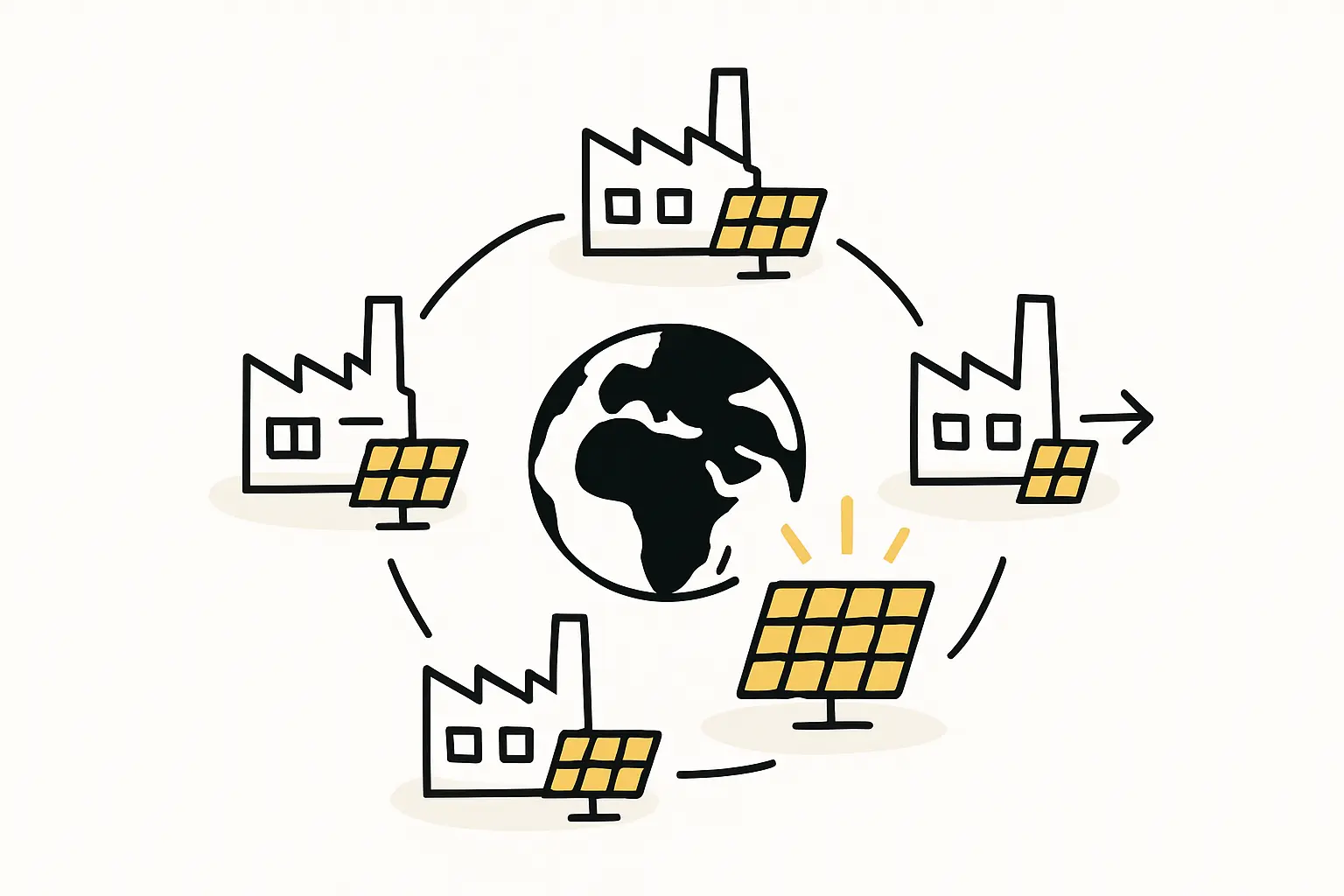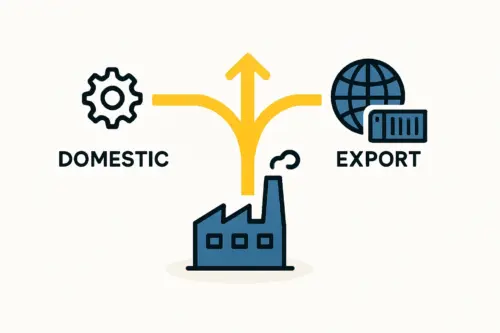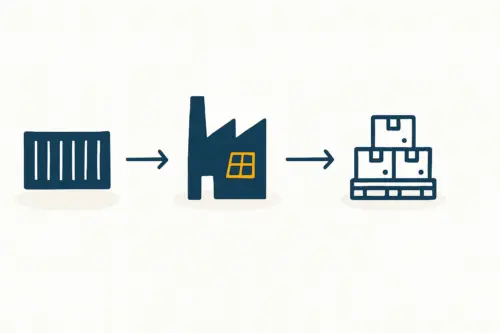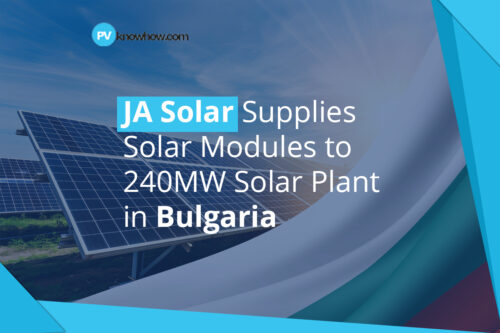Establishing a solar module manufacturing facility is a significant undertaking. Once an entrepreneur commits to entering the market, a series of critical decisions follows. Selecting the right location is one of the most foundational of these.
Choosing a country like Bulgaria, with its strategic position within the European Union and competitive cost structure, is a logical first step. However, the subsequent decision—identifying the specific industrial zone within that country—can shape the long-term success and operational efficiency of the entire enterprise.
This decision extends far beyond a simple real estate transaction. It is a strategic choice that impacts logistics, supply chains, labor costs, administrative processes, and scalability. An optimal location can act as a powerful business accelerator, while a suboptimal one can create persistent operational friction.
Table of Contents
Why Bulgaria is an Emerging Hub for High-Tech Manufacturing
Bulgaria’s appeal as a manufacturing base is built on several key advantages. As a member of the European Union, it offers frictionless access to the vast European single market. This is complemented by a highly competitive fiscal environment, including a flat 10% corporate income tax rate, one of the lowest in the EU.
The Bulgarian government has also actively fostered an investment-friendly climate, offering various incentives for significant projects, particularly in the manufacturing and technology sectors. This combination of market access, cost efficiency, and government support has attracted a growing number of international companies, creating a robust industrial ecosystem. For the renewable energy sector, this environment provides a solid foundation for growth.
Key Criteria for Selecting an Industrial Zone for a Solar Factory
Evaluating a potential site requires a systematic approach. Investors must look beyond the initial land cost and assess the full operational environment. A thorough analysis should focus on the following essential criteria.
Infrastructure and Utilities
A solar module factory is an energy- and resource-intensive operation. The reliability of the electricity grid is paramount, as unexpected downtime can halt production and lead to significant financial losses. Consistent access to water for cooling and cleaning processes and a stable natural gas supply for certain equipment are equally important. The best industrial zones offer pre-installed, high-capacity utility connections, saving an investor considerable time and capital expenditure.
Logistics and Connectivity
A manufacturing plant’s efficiency hinges on its supply chain. A location with direct access to major transport arteries, such as the A1 Trakia motorway, is critical. This ensures a smooth flow of raw materials—glass, cells, aluminum frames—and the efficient distribution of finished modules to domestic and international markets. Proximity to international airports and major seaports like Burgas and Varna further enhances logistical capabilities. A comprehensive understanding of logistics is a cornerstone of how to start a solar factory.
Labor Pool and Skills
While a modern solar factory is highly automated, it still requires a skilled workforce of engineers, technicians, and operators to manage the solar module production line. An industrial zone located near a major urban center with technical universities, such as Plovdiv or Sofia, offers a clear advantage in recruiting and retaining qualified personnel.
Permitting and Administrative Support
Navigating the bureaucracy for construction and operational permits can be a major hurdle for foreign investors. Premier industrial zones often provide one-stop-shop administrative support, guiding companies through the entire process. This centralized assistance can dramatically shorten timelines and prevent costly delays.
Ready to make big Profits?
The solar Industry is Booming
WE HELP NEWCOMERS to the solar industry start their own solar module production line. Customers can make BIG PROFITS by selling modules and finding investors, without wasting money and time on things they don't need!
A Comparative Look at Key Bulgarian Industrial Zones
While Bulgaria has several industrial parks, a few stand out as leading contenders for high-tech manufacturing investments.
The Trakia Economic Zone (TEZ), Plovdiv: A Premier Choice
Widely regarded as one of the most successful industrial development projects in Eastern Europe, the Trakia Economic Zone near Plovdiv is a compelling choice. It is a large-scale public-private partnership that hosts over 200 international companies, creating a powerful industrial cluster.
Strategic Location: Situated directly on the A1 Trakia motorway, TEZ offers excellent connectivity between Sofia, the Black Sea ports, and the Turkish border. Plovdiv Airport is nearby, providing air cargo options.
Developed Infrastructure: TEZ is known for its robust and reliable infrastructure. Investors gain access to a high-capacity power grid, gas pipelines, and modern water and sewage systems. The zone also features its own customs office, which significantly streamlines import and export procedures.
Established Ecosystem: The presence of major companies like ABB, Schneider Electric, and Liebherr has fostered a rich ecosystem of suppliers, service providers, and a skilled labor pool. This network effect reduces operational risks and can lower supply chain costs.
Administrative Excellence: TEZ provides comprehensive support for investors, assisting with everything from site selection and design to navigating the permitting process with municipal and state authorities.

Sofia-Bozhurishte Economic Zone: The Capital Advantage
Located on the outskirts of the capital, the Sofia-Bozhurishte Economic Zone leverages its proximity to the country’s largest economic and administrative center.
Capital Proximity: The zone offers unmatched access to the largest and most diverse labor market in Bulgaria, key government institutions, and Sofia International Airport, the country’s primary air hub.
State-Backed Development: Managed by the National Company Industrial Zones EAD, this zone benefits from direct state support and a focus on attracting high-value-added investments.
Considerations: While advantageous, the proximity to Sofia can translate into higher costs for land and labor compared to other regions like Plovdiv.
Industrial and Logistics Park – Burgas: The Maritime Gateway
For businesses where sea freight is a dominant logistical factor, the industrial zones around Burgas offer a distinct advantage.
Port Proximity: Its location next to the Port of Burgas makes it an ideal choice for manufacturers importing large volumes of raw materials or exporting finished modules by sea. This logistical advantage must be a key consideration in any solar panel manufacturing business plan heavily reliant on global supply chains.
Connectivity: The park is well-connected to the national motorway network, ensuring efficient distribution to the rest of the country and neighboring regions.
Considerations: The location is further from the primary economic axis of Sofia-Plovdiv, which can be a key consideration for businesses targeting domestic or central European markets.
Practical Considerations Beyond the Brochure
Based on experience from J.v.G. turnkey projects, several practical factors must be considered alongside the official information provided by industrial zones.
On-Site Due Diligence: Verifying all claims on the ground is essential. A site visit to confirm the actual state of infrastructure, road access, and utility connection points is non-negotiable.
Local Partnerships: Engaging a reliable local consultant or partner can be invaluable for navigating the nuances of local regulations and business culture.
Future Scalability: The initial site selection must account for future growth. Does the plot allow for the expansion of the factory floor or the addition of a second production line? Planning for scalability from day one prevents major constraints down the road.
For entrepreneurs embarking on this journey, structured educational resources like the pvknowhow.com e-course can provide a clear framework for these critical early-stage decisions.
Frequently Asked Questions (FAQ)
Q: What are the typical land acquisition costs in these zones?
A: Prices can vary significantly based on location and infrastructure readiness. As a general guide, investors can expect costs to range from €30 to €70 per square meter in the major industrial zones.
Q: How long does the permitting process typically take for a new factory build?
A: With effective administrative support from an industrial zone, the full cycle of design, approvals, and construction permits can often be completed within 6 to 12 months. This timeline, however, depends on project complexity and the efficiency of local authorities.
Q: Is it difficult to find qualified engineers and technicians in Bulgaria?
A: Bulgaria has a strong tradition of engineering education, with major technical universities in Sofia, Plovdiv, Varna, and Gabrovo. While there is competition for top talent, the available labor pool is generally well-regarded and competitively priced compared to Western Europe.
Q: Are there specific government incentives for solar manufacturing?
A: While there may not always be programs exclusively for solar manufacturing, the Bulgarian government offers a range of investment incentives for projects that meet certain thresholds for investment value and job creation. These can include financial support for training and infrastructure development.
Q: How does Bulgarian utility pricing compare to other EU countries?
A: Electricity and natural gas prices in Bulgaria are among the most competitive within the European Union, contributing to lower overall operational costs for energy-intensive manufacturing.
Conclusion: Making a Strategic Site Selection
Choosing an industrial zone in Bulgaria is a multi-faceted decision that will shape the operational future of a solar module factory. While zones near Sofia and Burgas offer specific advantages related to capital access and sea freight, the Trakia Economic Zone in Plovdiv often emerges as a highly balanced and strategic choice. Its proven track record, superior infrastructure, established industrial ecosystem, and strong administrative support create an environment where a new manufacturing enterprise can thrive.
The logical next step for any serious investor is to move beyond this analysis and conduct a detailed feasibility study. This crucial step should include on-site visits, preliminary discussions with zone administrators, and a financial model tailored to the specific costs and opportunities of each potential location. This diligent approach ensures that the foundation of your new venture is built on solid ground.






